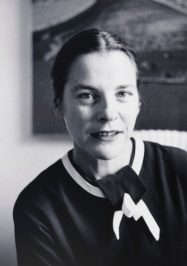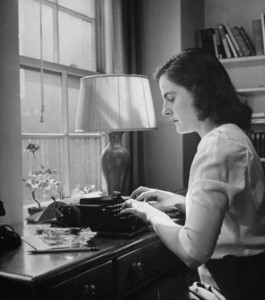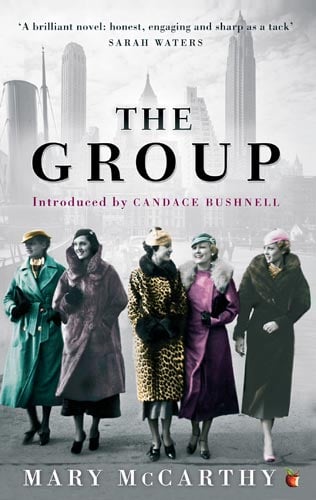Mary McCarthy Quotes with a Critical Eye
By Nava Atlas | On July 15, 2017 | Updated October 26, 2022 | Comments (0)

Mary McCarthy (1912 – 1989) was an American novelist and political activist. She began her writing career as a critic, gaining respect for her observations on culture and politics.
The Group (1954) was arguably her most popular novel — it sat on the New York Times bestseller list for two years and was made into a popular film.
McCarthy’s novels and stories are part autobiography and part fiction, as she draws on her own experiences, traumas, and successes. That, along with her writing style, made her a respected talent in the writing community. It’s an honest and critical eye that inform this selection of Mary McCarthy’s quotes.
. . . . . . . . . .
“When you have committed an action that you cannot bear to think about, that causes you to writhe in retrospect, do not seek to evade the memory: make yourself relive it, confront it repeatedly over and over, till finally, you will discover, through sheer repetition it loses its power to pain you. It works, I guarantee you, this sure-fire guilt-eradicator, like a homeopathic medicine — like in small doses applied to like. It works, but I am not sure that it is a good thing.” (How I Grew, 1987)
. . . . . . . . . .
“In violence, we forget who we are.” (“Characters in Fiction,” Partisan Review, March, 1961)
. . . . . . . . . .
“Life is a system of recurrent pairs, the poison and the antidote being eternally packaged together by some considerate heavenly druggist.”
“She decided she wanted a cool, starchy independent life, with ruffles of humor like window curtains.” (The Group, 1954)
. . . . . . . . . .
“You can date the evolving life of a mind, like the age of a tree, by the rings of friendship formed by the expanding central trunk.” (How I Grew, 1987)
. . . . . . . . . .
“The suspense of a novel is not only in the reader, but in the novelist, who is intensely curious about what will happen to the hero.”
. . . . . . . . . .
“Every word she writes is a lie, including ‘and’ and ‘the.’” (Comment about Lillian Hellman in a televised interview on The Dick Cavett Show (1979)
. . . . . . . . . .
“What I really do is take real plums and put them in an imaginary cake.”
. . . . . . . . . .
“If someone tells you he is going to make ‘a realistic decision,’ you immediately understand that he has resolved to do something bad.” (American Realist Playwrights, July 1961)
. . . . . . . . . .
“One of the big features of living alone was that you could talk to yourself all you wanted and address imaginary audiences, running the gamut of emotion.” (The Group, 1954)
. . . . . . . . . .
Learn more about Mary McCarthy
. . . . . . . . . .
“The labor of keeping house is labor in its most naked state, for labor is toil that never finishes, toil that has to be begun again the moment it is completed, toil that is destroyed and consumed by the life process.” (“The Vita Activa,” The New Yorker, October 18, 1958)
. . . . . . . . . .
“I suppose everyone continues to be interested in the quest for the self, but what you feel when you’re older, I think, is that — how to express this — you really must make the self. It’s absolutely useless to look for it, you won’t find it, but it’s possible in some sense to make it.” (From an interview in The Paris Review Interviews: Writers at Work, Second Series conducted in 1961)
. . . . . . . . . .
“The theater is the only branch of art much cared for by people of wealth; like canasta, it does away with the bother of talk after dinner.” (Up the Ladder from Charm to Vogue, 1950)
. . . . . . . . . .
“A novelist is an elephant, but an elephant who must pretend to forget.”
. . . . . . . . . .
“We all live in suspense, from day to day, from hour to hour; in other words, we are the hero of our own story.” (“Characters in Fiction,” Partisan Review, March, 1961)
. . . . . . . . . .
“People with bad consciences always fear the judgment of children.” (On the Contrary, 1961)
. . . . . . . . . .
“There are no new truths, but only truths that have not been recognized by those who have perceived them without noticing.”
. . . . . . . . . .
. . . . . . . . . .
“We all know in our gut that art educates. In other societies, they’re aware of the power it has of speaking directly to the masses, teaching them to be better socialists, better citizens. The trouble is that with us it’s fallen into the wrong hands. Forget the speculators … The concept of the collector is so rotten by now that it stinks.” (Cannibals and Missionaries, 1979)
. . . . . . . . . .
“It is really difficult to tell a good action from a bad one? I think one usually knows right away or a moment afterward, in a horrid flash of regret.”
. . . . . . . . . .
“What’s the use of falling in love if you both remain inertly as you were?”
. . . . . . . . . .
“You mustn’t force sex to do the work of love or love to do the work of sex—that’s quite a thought, isn’t it?” (The Group, 1954)
. . . . . . . . . .
“I really tried, or so I thought, to avoid lying, but it seemed to me that they forced it on me by the difference in their vision of things, so that I was always transposing reality for them into something they could understand.” (Memoirs of a Catholic Girlhood, 1972)
. . . . . . . . . .



Leave a Reply